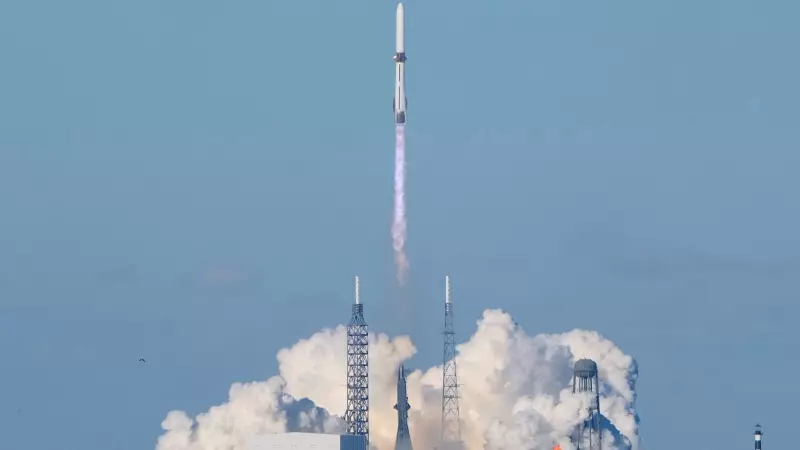
In a landmark achievement for private space exploration, Jeff Bezos' aerospace company Blue Origin has successfully launched NASA's twin ESCAPADE spacecraft on their journey to Mars. The historic mission marks a significant milestone for both the commercial space industry and planetary science.
New Glenn Rocket's Maiden Voyage
The launch took place from Blue Origin's facilities at Cape Canaveral, Florida, utilizing the company's powerful New Glenn rocket for its first-ever interplanetary mission. This represents a crucial demonstration of the rocket's capabilities for deep space missions beyond Earth's orbit.
NASA's ESCAPADE mission, which stands for Escape and Plasma Acceleration and Dynamics Explorers, consists of two identical small satellites designed to study the interaction between Mars' atmosphere and the solar wind. The twin spacecraft are now beginning their approximately 11-month journey to reach the Red Planet.
Scientific Objectives and Mission Details
The ESCAPADE spacecraft will enter elliptical orbits around Mars to conduct coordinated measurements of the planet's magnetosphere and upper atmosphere. This research is crucial for understanding how solar activity affects atmospheric loss on Mars, which has significant implications for understanding planetary evolution and potential future human exploration.
Each spacecraft carries identical instruments to measure magnetic fields, plasma, and energetic particles. The mission represents a more cost-effective approach to planetary science compared to traditional single, larger spacecraft missions. The total mission cost is approximately $80 million under NASA's Small Innovative Missions for Planetary Exploration program.
Private Space Industry Milestone
This successful launch demonstrates the growing capability of private companies to support interplanetary missions. Blue Origin's involvement in Mars exploration marks a significant expansion of their space services beyond suborbital and Earth orbital missions.
The mission also highlights NASA's increasing reliance on commercial partners for space exploration objectives. By leveraging private sector innovation and efficiency, space agencies can conduct more frequent and diverse scientific missions at reduced costs.
The ESCAPADE spacecraft are expected to reach Mars orbit in late 2024 or early 2025, where they will begin their primary science operations lasting at least one Martian year (approximately two Earth years). The data collected will provide unprecedented insights into how Mars lost its atmosphere over time and how space weather affects planetary environments.






